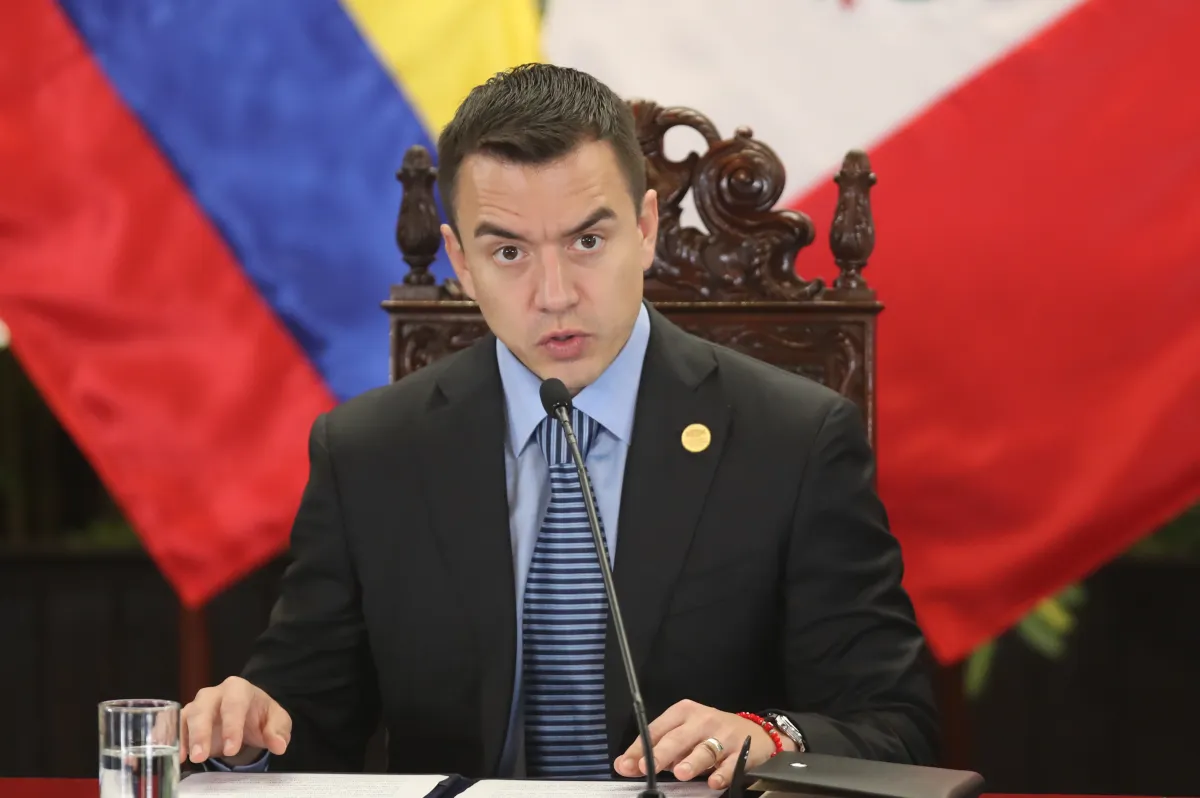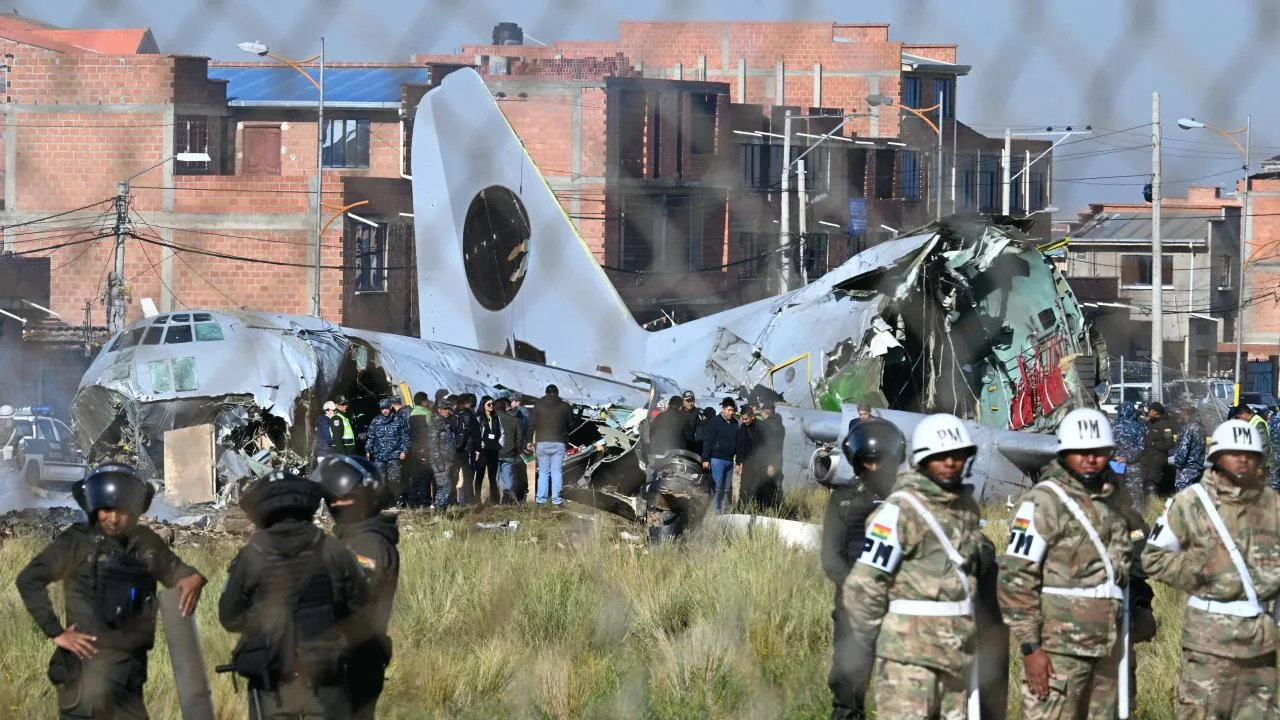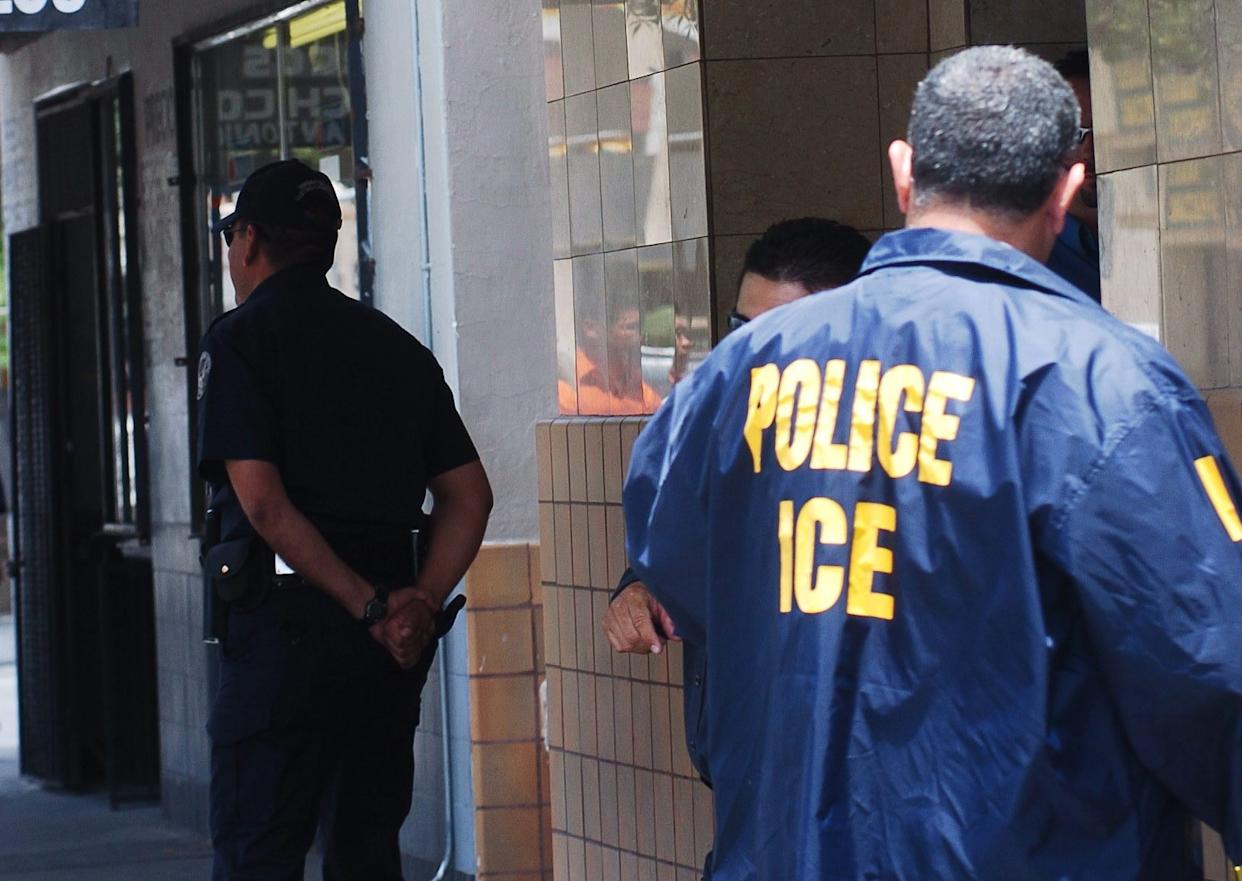International
Noboa sends to Parliament reform to re-establish foreign military bases in Ecuador

The president of Ecuador, Daniel Noboa, sent this Thursday to the National Assembly (Parliament) the constitutional reform project to open the door to the re-establishment of foreign military bases in Ecuador, prohibited by the Constitution promulgated during the term of former President Rafael Correa (2007-2017), which forced the United States to leave the Manta base in 2009.
Noboa had already announced last September its intention to promote this constitutional reform to allow the installation of foreign permanent military bases in the country again, as part of its actions in the “internal armed conflict” that it declared at the beginning of the year against organized crime.
The National Assembly must process the constitutional reform project, which if approved must be endorsed in a referendum whose celebration could coincide with one of the voting dates of the general elections scheduled for early 2025.
The reason for the re-establishment of foreign bases in Ecuador
The Presidency of Ecuador assured in a statement that it has the favorable resolution of the Constitutional Court so that this change in the magna carta is processed as a partial reform, considering the court that it does not restrict constitutional rights and guarantees, but refers only to security in Ecuador.”
“Now the process will pass into the hands of the Legislature, who must decide which side of history it will be on regarding the proposal that will strengthen international cooperation in the fight against terrorism and crime,” said the Secretariat of Communication of the Presidency.
Following the announcement of this approach made by Noboa, the United States Embassy in Ecuador clarified in September that its Government does not plan to request authorization to establish a permanent military base in the Andean country.
Agreements between Ecuador and the United States
Ecuador and the United States currently maintain maritime cooperation agreements for the capture of vessels that transport large amounts of cocaine from the Ecuadorian coast to North America.
Some of these prohibitions have been made in recent days by the United States Coast Guard in international waters, to later hand over the detainees and narcotics to the Ecuadorian authorities within their jurisdictional waters, as the Ecuadorian Navy pointed out in a recent statement.
Likewise, both countries also recently signed a commitment act for the delivery to Ecuador of two 33.5-meter-long patrol boats of the United States Coast Guard, on the condition that Ecuador takes charge of their reconditioning and transport.
Noboa’s strategy
Since the beginning of the year, Noboa raised the fight against organized crime to the category of “internal armed conflict”, with which he went on to catalog these gangs as terrorist groups and non-state belligerent actors, while decreeing a state of emergency with which, among other actions, he militarized the prisons controlled by these organizations, which he also points out for being related to drug trafficking.
Surrounded by Colombia and Peru, the world’s two largest producers of cocaine, with several ports on its coasts, such as Guayaquil, and a dollarized economy, Ecuador has become in recent years an important step for the trafficking of that drug that is mainly directed to Europe and North America.
Ecuador is listed as the third country in the world that confiscates the most drugs – only behind Colombia and the United States – with about 200 tons of narcotics per year that have been seized in each of the last three years, while in 2024 it has already exceeded that figure.
At the same time, Ecuador was positioned in 2023 as the country with the most homicides per capita in Latin America, with a rate of 47.2 per 100,000 inhabitants, while in 2024 the authorities claim to have reduced homicides by 18%.
International
Bolivia Orders Three Investigations Into Deadly Military Plane Crash

Bolivia’s Defense Minister Marcelo Salinas announced Monday that three separate investigations will be conducted into Friday’s crash of a military cargo aircraft at El Alto International Airport, near La Paz, which left at least 22 people dead.
The Hercules aircraft, operated by the Fuerza Aérea Boliviana (FAB), was transporting cash intended for the Central Bank of Bolivia when it overshot the runway after landing from the city of Santa Cruz. The plane reportedly traveled nearly one kilometer beyond the airport perimeter.
The incident sparked chaotic scenes, with individuals attempting to collect scattered banknotes. Authorities detained 51 people in the aftermath, and the government declared three days of national mourning.
Multiple Investigations Underway
The first inquiry is being led by a military board from the Bolivian Air Force, which has already taken custody of the aircraft’s black box for analysis.
Minister Salinas said two additional investigations will follow — one conducted by the insurance company and another by the aircraft’s manufacturer.
“At least two more investigations will come, that of the insurance company and that of the aircraft manufacturer,” Salinas said during a press conference in Santa Cruz.
He cautioned that the investigative process could take between three and six months, noting that the black box cannot be opened in Bolivia due to the lack of specialized laboratories for analysis.
Awaiting Official Findings
Salinas stressed that the FAB investigative board is the highest authority in the case and urged the public to wait for its conclusions to avoid speculation about the causes of the crash.
He also confirmed that the government has contacted the families of the 22 victims and the 37 injured, as well as the owners of 15 damaged vehicles, to coordinate procedures with the insurer and cover the corresponding expenses.
International
Mexico Calls for Immediate Probe After National Dies in ICE Custody

Mexico’s Secretaría de Relaciones Exteriores (SRE) on Monday called on U.S. authorities to conduct an “immediate and thorough” investigation into the death of a Mexican national while in custody of U.S. Immigration and Customs Enforcement (ICE) at a processing facility in California.
In a statement, the Mexican government described the death as “regrettable” and urged U.S. officials to clarify the circumstances surrounding the case in order to “determine responsibilities and ensure that such events do not happen again.”
Death at Adelanto Processing Center
According to available information, the Mexican citizen died at the Adelanto Processing Center in California while under ICE custody. Authorities have not yet released the individual’s identity or the cause of death.
Following the incident, Mexico’s Foreign Ministry formally requested “detailed information” from U.S. authorities, including the detainee’s medical records and custody reports.
Consular Assistance Activated
The Mexican Consulate in San Bernardino, California, has activated consular assistance protocols to provide ongoing support to the deceased’s family. Officials have contacted relatives to express condolences and offer legal guidance, as well as assistance with the necessary procedures to repatriate the remains.
“The handling of situations like this and the establishment of mechanisms to resolve them are priorities for the Government of Mexico,” the Foreign Ministry said, adding that it will formally request an investigation into any systemic conditions that may have contributed to such incidents.
Local Mexican media reported that seven Mexican nationals died while in ICE detention last year — the highest number recorded since the agency was created.
International
Anti-ICE Billboard Campaign Targets Immigration Spending in 31 U.S. Cities

More than 200 billboards criticizing U.S. Immigration and Customs Enforcement (ICE) began appearing Monday in 31 cities across the United States, including Miami, as part of a campaign highlighting the high cost of immigration enforcement operations for taxpayers.
The initiative, titled “ICE Costs Us,” was launched by the civil rights organization Mijente and will run for four weeks.
Criticism of Spending and Enforcement Tactics
The billboards feature images of ICE agents during arrests or carrying military-style weapons. According to the organization, spending on military-grade equipment for the agency has increased by 600 percent in recent years.
Several signs display messages such as:
“Your taxes are being wasted” and “ICE’s cruelty costs you $28 billion,” referring to the agency’s annual budget.
In a statement, Marisa Franco, co-founder of the Mijente Support Committee, said:
“For too long, our government has prioritized building cages and investing billions in an immigration enforcement apparatus that has left families torn apart and communities terrified.”
She added that “Millions of Americans are living paycheck to paycheck, yet this violent agency continues operating with a blank check. These decisions do not make us safer nor improve our economic security. Our billboards highlight these choices and demand a different path.”
Budget Debate and Medicaid Comparison
The campaign also draws a comparison between ICE’s funding and the estimated 17 million people who could lose health coverage under Medicaid due to federal budget cuts under President Donald Trump.
Other billboard messages seen in various cities include:
“They get billions to beat us; we get layoffs and rising rents” and “Funding ICE is a fast track to fascism.”
Organizers say the goal is to spark public debate about the allocation of federal funds for immigration enforcement and the broader economic and social impact of such policies on communities nationwide.
-

 International4 days ago
International4 days agoCocaine Production Surges 34% in 2023 as Market Expands into Africa and Asia
-

 International1 day ago
International1 day agoIran Reports 201 Dead, 747 Injured After U.S. and Israeli Strikes
-

 International3 days ago
International3 days agoTrump Floats “Friendly Takeover” of Cuba Amid Rising Tensions
-

 Sin categoría2 days ago
Sin categoría2 days agoTrump: ‘We Think It’s True’ Amid Claims Iran’s Supreme Leader Was Killed
-

 International2 days ago
International2 days agoSecurity Council to Hold Emergency Meeting on Middle East Crisis
-

 International4 days ago
International4 days agoFederal Judge Blocks Trump Policy Allowing Deportations to Third Countries
-

 International3 days ago
International3 days agoArgentina’s Senate Reviews Milei-Backed Labor Overhaul
-

 International1 day ago
International1 day agoPope Leo XIV Urges End to ‘Spiral of Violence’ in Middle East
-

 International4 days ago
International4 days agoClinton Accuses Republican Committee of Using Epstein Case to Shield Trump
-

 International5 hours ago
International5 hours agoAnti-ICE Billboard Campaign Targets Immigration Spending in 31 U.S. Cities
-

 International5 hours ago
International5 hours agoTrump Warns of ‘Major Wave’ of Attacks as Iran Conflict Escalates
-

 International5 hours ago
International5 hours agoBrazil’s Supreme Court Rejects Bolsonaro’s Bid for House Arrest
-

 International5 hours ago
International5 hours agoMexico Calls for Immediate Probe After National Dies in ICE Custody
-

 International5 hours ago
International5 hours agoBolivia Orders Three Investigations Into Deadly Military Plane Crash
-

 Central America5 hours ago
Central America5 hours agoPanama Canal Monitoring Trade as Middle East Conflict Disrupts Shipping




























